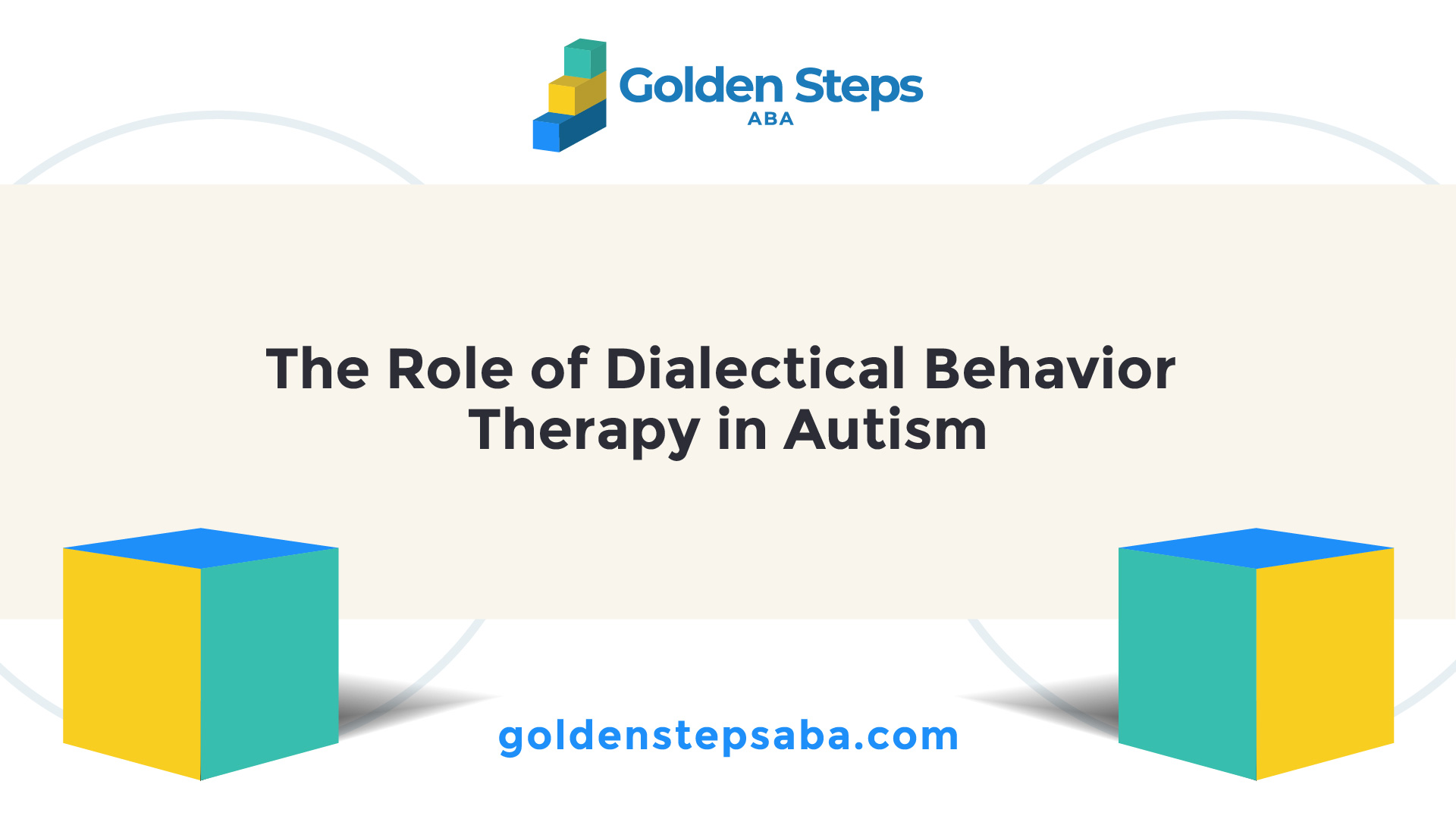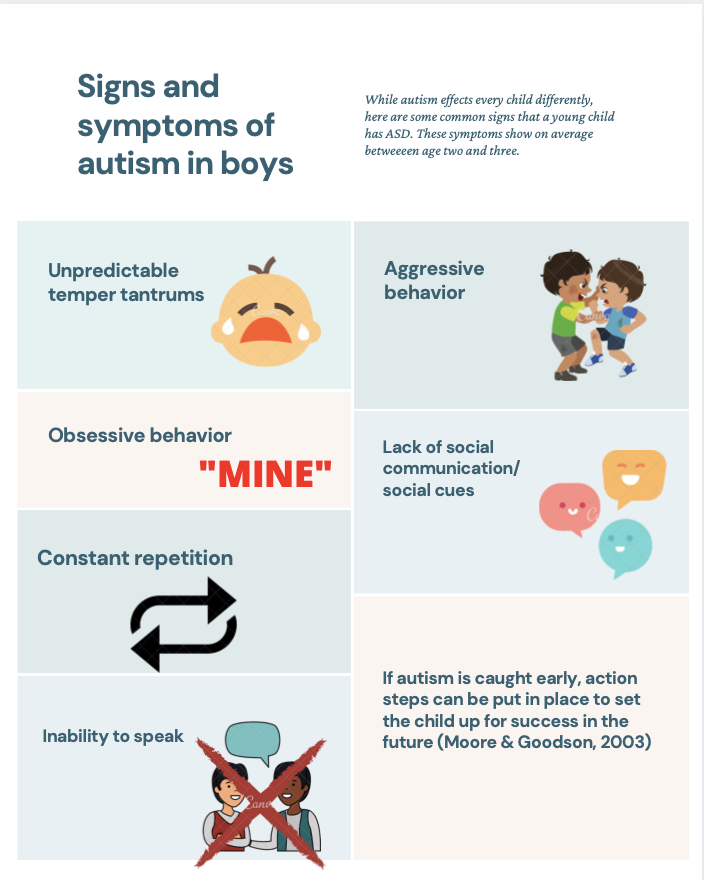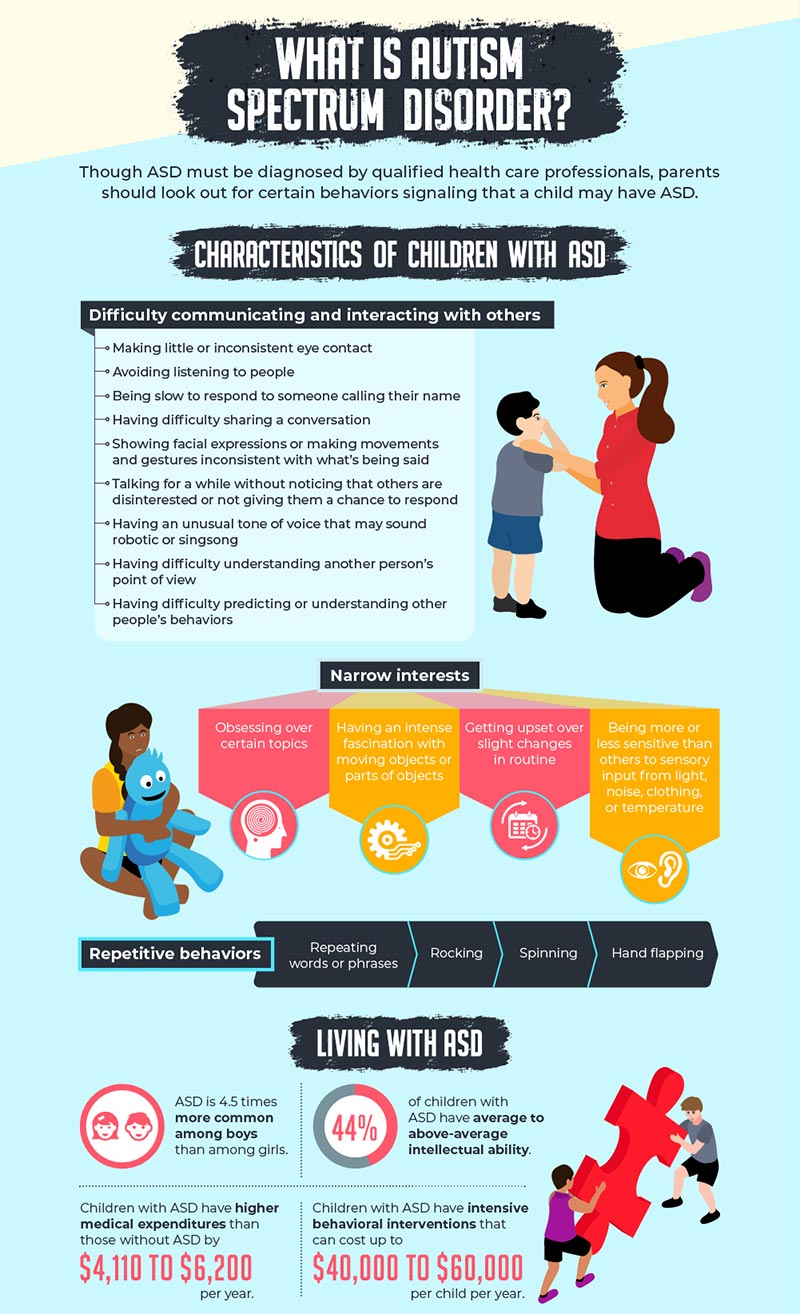Recognizing emotional signals through Autism Therapist methods
Recognizing emotional signals through Autism Therapist methods
Blog Article
Key Symptoms And Signs to Acknowledge in People With Behavior Autism
When you run into a person with behavior autism, identifying crucial symptoms and signs is important. You might observe challenges in social interactions and interaction, in addition to a strong need for routines. In addition, sensory level of sensitivities can bring about overwhelming experiences. Comprehending these qualities can boost your support and treatments, however there's more to discover regarding exactly how these behaviors manifest in everyday situations. Allow's discover what these indications actually appear like.
Challenges in Social Interactions
When you engage with somebody on the autism range, you may observe they fight with social cues and interaction. These challenges can make social communications really feel frustrating for them. You might see them preventing eye contact or standing too close or also far throughout discussions, which can develop misconceptions. They could not detect body language or face expressions, making it harder for them to evaluate how others are really feeling.
When they do engage, they might chat about their passions in great information without observing if you're interested. Understanding these difficulties can help you come close to communications with empathy and persistence, promoting an extra comfortable setting for both of you.
Problem With Verbal and Non-Verbal Interaction

Non-verbal communication can be a lot more difficult. You could see an absence of eye get in touch with or limited use of motions, which can make interactions really feel uncomfortable. Face expressions may not constantly straighten with the conversation, causing confusion regarding their feelings. Acknowledging these indications is vital, as it aids you better assistance and involve with people on the autism spectrum. By understanding their communication challenges, you can cultivate a lot more purposeful links and give a much more helpful setting.
Repeated Habits and Regimens
Communication difficulties often accompany other indications of autism, such as repeated behaviors and a solid preference for routines. You could see that people with autism usually take part in particular, repeated activities, like hand-flapping, shaking, or repeating phrases. These habits can offer convenience and a sense of control in an usually overwhelming globe.
Routines are equally essential; numerous people prosper when they follow an organized schedule. You may discover that adjustments to these routines can result in significant distress. As an example, if they have a daily ritual of eating breakfast at a particular time or adhering to a certain path to college, any type of disruption can cause anxiousness.
Identifying these patterns helps you understand their habits and provide assistance. By suiting their requirement for routine and enabling repetitive activities, you can produce a much more comfortable environment that relieves their obstacles.
Sensory Sensitivities

Usual Sensory Triggers
Sensory level of sensitivities can significantly impact daily life for people with autism, as specific stimuli commonly activate frustrating reactions. Common sensory triggers include loud noises, brilliant lights, and solid scents. Understanding these triggers can help you handle your environment better.
Behavior Actions Described
Recognizing your behavior responses to sensory level of sensitivities is crucial, as they often expose exactly how you communicate with the globe. You might notice that particular noises, lights, or appearances bewilder you, causing stress and anxiety or discomfort. When encountered with these stimulations, you might take out, cover your ears, or perhaps react aggressively. These responses aren't simply quirks; they're your means of managing overstimulation. You might additionally find yourself seeking certain sensory experiences, like deep stress or silent settings, to assist ground on your own. Recognizing these patterns assists you recognize your demands far better and can assist exactly how you interact them to others. By acknowledging your sensory level of sensitivities, you can work towards developing an environment that feels extra manageable and comfy for you.
Coping Methods Review
Identifying your sensory her explanation sensitivities is simply the initial step; now it's time to explore coping strategies that can help you handle those experiences successfully. Begin by developing a sensory toolkit tailored to your demands. Establishing a structured regimen can also supply predictability, lowering stress and anxiety around sensory overload.
Restricted Passions and Emphasis
While numerous individuals establish a wide variety of passions, those with autism often show restricted interests and an extreme concentrate on details subjects. You might observe that somebody with autism can invest hours diving right into their favored topic, whether it's a specific kind of train, a specific motion picture, or a scientific idea. This intense emphasis isn't simply a leisure activity; it can end up being a central component of their identity and social interactions.
You may locate that discussions revolve around these rate of interests, and they might have a hard time to involve in more comprehensive subjects. By comprehending and recognizing these restricted interests, you can cultivate a supportive environment where they feel valued and comprehended, enabling for more significant links and interactions.
Psychological Regulation Problems
People with autism usually face challenges in emotional regulation, which can be influenced by their intense concentrate on specific rate of interests. You could discover that when a person is deeply participated in a recommended task, they can experience strong emotions, whether enjoyment or irritation. When points don't go as prepared., this strength often makes it hard for them to move gears or manage their feelings - Aba Therapist.

Irregularity in Developing Turning Points
When it pertains to developing turning points, you'll observe that people with autism commonly show a wide variety of variability. Some may hit turning points on schedule, while others may hang back or progress at a various speed. You might see a youngster stand out in language abilities but battle with social interactions. This disparity can be complicated, as traditional standards don't always apply.
It's vital to top article acknowledge that each individual's trip is distinct. Some may establish complex abilities early, only to encounter obstacles later on. Others could take longer to achieve basic milestones but after that flourish in details locations. Observing these patterns can aid you comprehend their staminas and needs about his much better.
Frequently Asked Concerns
How Is Autism Detected in Children and Grownups?
To diagnose autism in grownups and children, professionals review actions, communication skills, and social communications. If a specific satisfies the criteria for autism spectrum condition., they usually utilize standardized tests, interviews, and monitorings to identify.
Are There Various Kinds Of Autism Spectrum Disorders?
Yes, there are various kinds of autism spectrum disorders, consisting of Asperger's disorder and prevalent developing disorder-not or else specified. Each kind differs in severity and characteristics, so understanding these differences can assist you much better assistance people with autism.
What Therapies Work for Individuals With Autism?
When considering effective therapies for individuals with autism, you'll locate alternatives like Applied Habits Analysis, speech treatment, and work-related therapy. Each strategy can help enhance communication, social skills, and daily operating tailored to individual needs.
Can Individuals With Autism Lead Independent Lives?
Yes, individuals with autism can lead independent lives. With the ideal assistance, abilities training, and resources, you can help them develop self-sufficiency, take care of day-to-day jobs, and flourish in numerous atmospheres, fostering their freedom.
Exactly How Can Families Support Liked Ones With Autism?
You can support your liked ones with autism by creating an organized setting, urging their rate of interests, exercising perseverance, fostering interaction, and advertising social skills. Commemorate their success, no matter how small, and develop an encouraging area.
Although numerous individuals on the autism spectrum can utilize and comprehend language, they often deal with considerable difficulties with both non-verbal and verbal communication. Acknowledging these indicators is important, as it helps you better assistance and engage with people on the autism range. You could discover that people with autism frequently involve in details, repetitive actions, like hand-flapping, shaking, or duplicating phrases.Sensory sensitivities can considerably affect day-to-day life for people with autism, as particular stimulations typically trigger frustrating responses.When it comes to developmental milestones, you'll discover that individuals with autism typically show a vast variety of variability.
Report this page